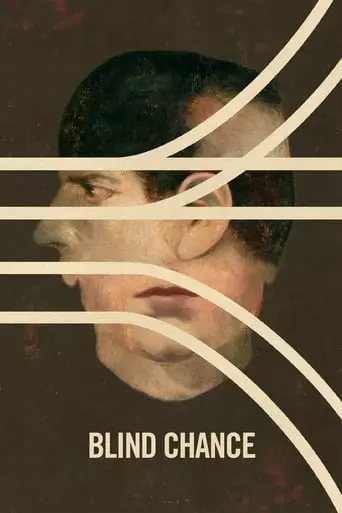
Blind Chance (1987) Watch Online Free
Witek runs after a train. Three variations follow on how such a seemingly banal incident could influence the rest of Witek’s life.
Blind Chance (1987), directed by Krzysztof Kieslowski, is a compelling exploration of fate and choice. The film centers on Witek, a young man whose life diverges in three distinct ways based on a single moment: whether he catches or misses a train at the beginning of the story. This seemingly trivial decision sets in motion three alternate realities, each reflecting a different path shaped by political, social, and personal circumstances.
In the first scenario, Witek is swept into the world of political opposition in Communist Poland, joining a group of activists. His involvement with dissidents leads to betrayal and tragic consequences. The second scenario sees Witek align with the Communist Party, a more conventional path that also ends in frustration, as his personal and political commitments conflict. In the third and final scenario, Witek chooses a quieter life, rejecting politics and religion, marrying a fellow medical student, and leading a seemingly ordinary life. However, this choice ultimately leads to his death in a plane crash, illustrating the film’s central theme: the inevitability of fate despite personal choices.
Blind Chance delves deeply into themes of fate, choice, and the human condition. The film presents a philosophical inquiry into the role of individual agency within a deterministic world. Each of Witek’s lives, though radically different, illustrates the same human struggles: love, loss, political disillusionment, and the search for meaning. Kieslowski uses these parallel lives to question the possibility of free will and to explore how personal decisions, even small ones, can have profound and irreversible consequences.
The film also critiques the political landscape of Communist Poland, reflecting the tension between personal desires and the oppressive social systems of the time. The varying outcomes of Witek’s choices highlight the social and political constraints that shape individual lives, suggesting that no matter the path, the character remains trapped in a cycle of frustration and disillusionment.
The impact of Blind Chance extends beyond its political context. The film is a landmark in Kieslowski’s career, showcasing his shift towards exploring humanistic themes with a philosophical bent. Its structure—where the same character experiences multiple versions of life—foreshadows the director’s later works, particularly the Three Colors trilogy. The film also influenced later works in the “what if?” genre, such as Sliding Doors (1998), which similarly explores how a single moment can alter the course of a life.
Blind Chance is not only a product of its time but also a timeless exploration of human agency and the complexity of life choices. The film’s structure, combining political and personal narratives, offers a nuanced reflection on the interplay between individual autonomy and external forces. Kieslowski’s refusal to offer a definitive answer about fate or free will makes the film a powerful meditation on the uncertainties of life.
After watching Blind Chance, you may feel a mix of reflection and unease. The film’s exploration of fate versus free will can leave you contemplating the nature of your own decisions and the paths your life could take. The emotional weight of the film, coupled with its political and philosophical themes, may evoke feelings of both existential uncertainty and appreciation for the complexities of human life. The film’s open-ended nature may also prompt you to think critically about the impact of external forces on your personal life choices. Ultimately, Blind Chance is likely to leave you with a lingering sense of introspection and perhaps a renewed awareness of the fragile, unpredictable nature of existence.
